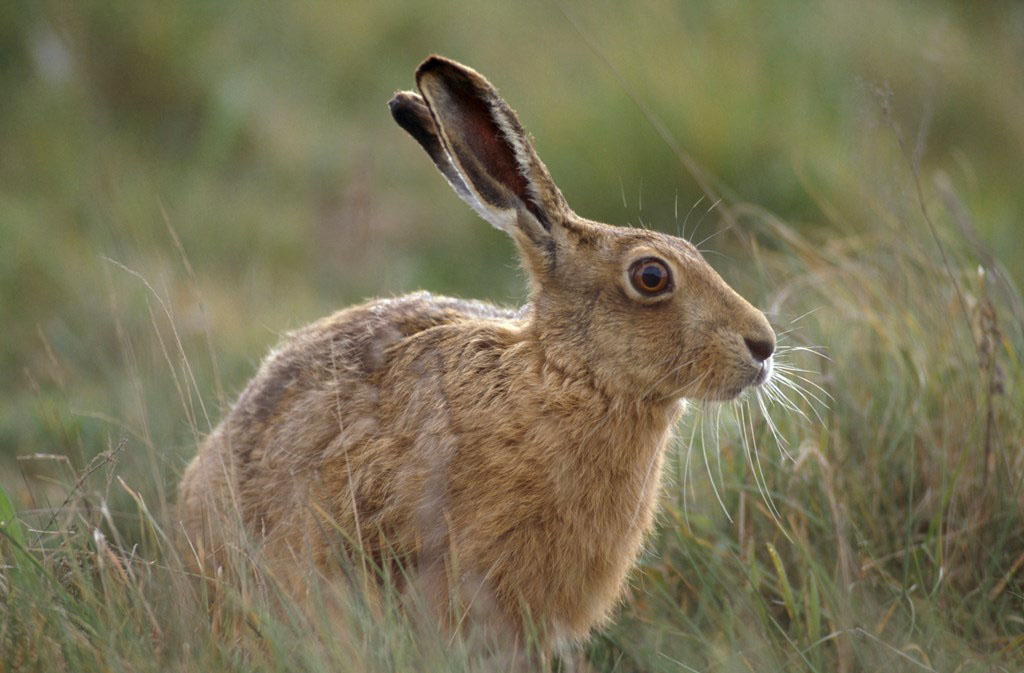THE LEVERET
For my grandson, Benjamin
This is your first night in Carrigskeewaun.
The Owennadornaun is so full of rain
You arrived in Paddy Morrison’s tractor,
A bumpy approach in your father’s arms
To the cottage where, all of one year ago,
You were conceived, a fire-seed in the hearth.
Did you hear the wind in the fluffy chimney?
Do you hear the wind tonight, and the rain
And a shore bird calling from the mussel reefs?
Tomorrow I’ll introduce you to the sea,
Little hoplite. Have you been missing it?
I’ll park your chariot by the otter’s rock
And carry you over seaweed to the sea.
There’s a tufted duck on David’s lake
With her sootfall of hatchlings, pompoms
A day old and already learning to dive.
We may meet the stoat near the erratic
Boulder, a shrew in his mouth, or the merlin
Meadow-pipit-hunting. But don’t be afraid.
The leveret breakfasts under the fuschia
Every morning, and we shall be watching.
I have picked wild flowers for you, scabious
And centaury in a jam-jar of water
That will bend and magnify the daylight.
This is your first night in Carrigskeewaun.
We are delighted to welcome Michael Longley as the judge of this year’s Nature and Place Competition. Trying to find one of his poems to focus on for this blog has proved especially difficult, there are simply so many that I love. It strikes me that the poems and the collections accumulate inevitably as one work, all setting out a place that is infinitely interconnected. The poems from Carrigskeewaun form a major part of that. Most recently though I’ve been revisiting the 2011 collection A Hundred Doors and I keep coming back to this poem, ‘The Leveret’.
I really encourage you to read it out loud to yourself and to anyone else who will listen, not just for the mastery of the craft in every line, but to hear how that sings the integrity of what is being said: all of the utterly unforced observation and feeling.
Longley’s work explores so much; history (personal, local and global), the classics, love, friendship, elegy, art and of course the natural world. For me all of it is astonishing, but his constant and evolving writing about nature is most exemplary as indeed is the position he stated in an interview with Jody Allen Randolph that: ‘The most urgent political poems are ecological: how we share the planet with the plants and the other animals. My nature writing is my most political.’
More and more I keep coming back to the ‘grandfather’ poems of recent years, like ‘The Leveret’, which show the world in microcosm, so tenderly watched and lived in and therefore rendered more beautifully true. The poems are bright with all the wonder of fledgling’s eyes, but clear-sighted – there’s no hiding here, the stoat has killed the shrew and the merlin is out hunting. But some part of the whole world is forever implied by this poem – the offspring of that leveret may still be running now and as I write this in January, the tufted duck won’t be thinking about nesting though once we move past these last weeks of winter they will be.
It will of course fall to Michael Longley to judge your entries, applying a very wide interpretation of the term ‘nature and place’. Turning back to the ‘The Leveret’ I will risk a suggestion that the poems you submit could benefit from engaging in some way with place or places and all their more-than-human constituents, as well as of course, people. Above all please do write and enter your best poems to the competition.
On behalf of the RSPB I want to state here our deepest thanks to all our partners who work so generously to make the competition possible: The Rialto, Ty Newydd, Cambridge Conservation Initiative, BirdLife International, Mark Cocker and Nick Davies. We are proud that this competition operates in two equally important ways. Most obviously it raises money for nature, providing vital funding that can be put to use at the lug-end of the conservation spade wherever it is most needed. Additionally, everyone who sits down to write a poem for the competition, who then carries it with them, thinking about it, crafting and re-drafting before finally submitting, is working with some part of the natural world. The poems submitted may not be placed amongst the winners of the competition, they may or may not go on to be published, but all will be fixed in the first crucial habitat of the heart and mind of the person who has written them, that in turn may extend out to readers or listeners wherever the poems go to be shared.
The deadline for entries is midnight on 1st March 2018. Follow the link here to enter online or to download the postal entry form:
https://www.therialto.co.uk/pages/nature-poetry-competition-2018/
Matt Howard
Image: Chris Gomersall (rspb-images.com)






